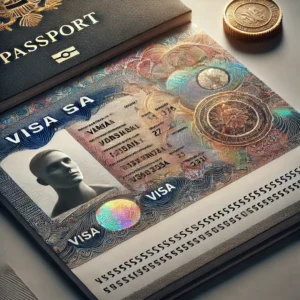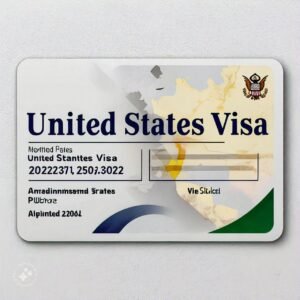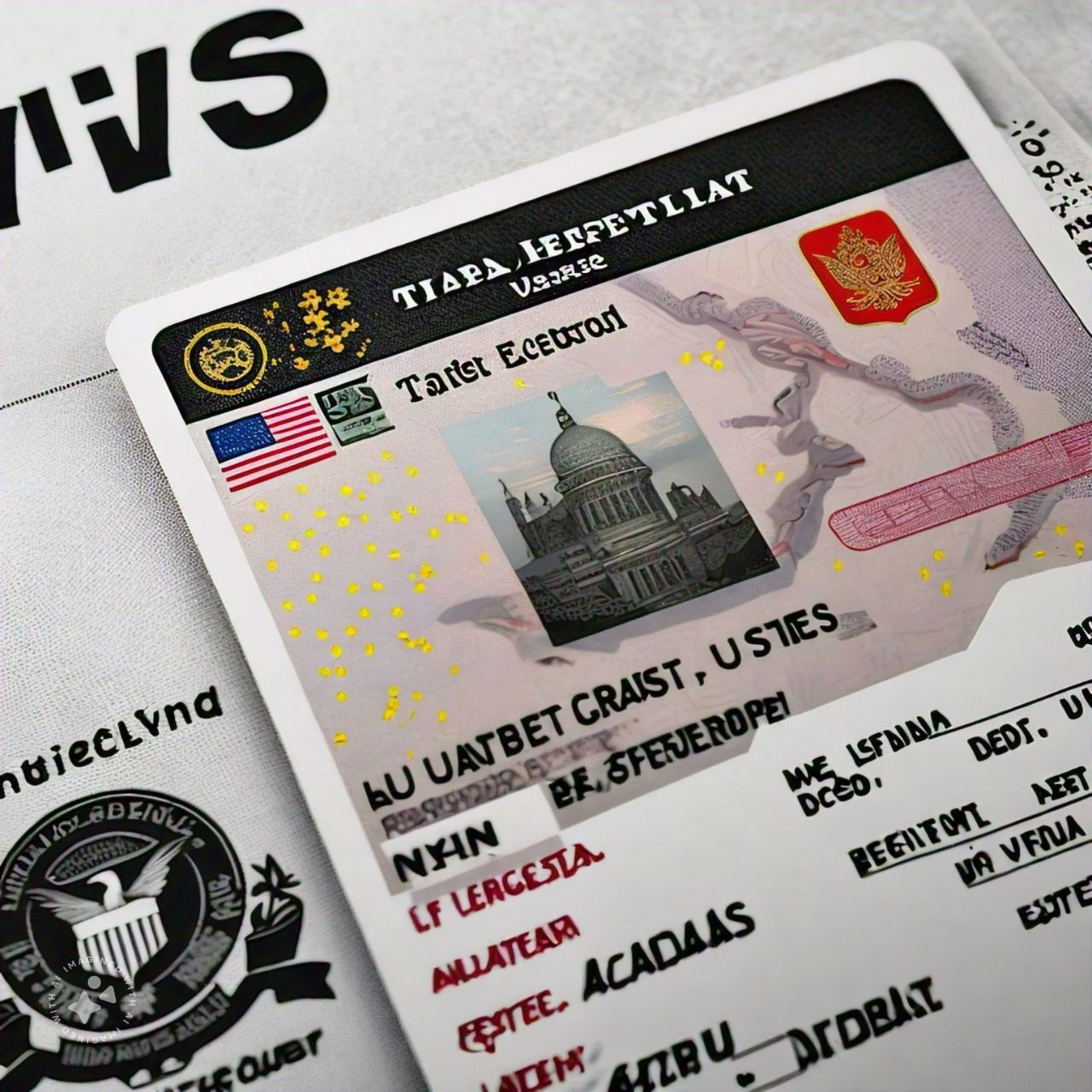Introduction to the Purpose of a Visa
The purpose of a visa is to regulate the entry, stay, and activities of foreign nationals in a country. Visas serve as official authorization, allowing travelers to visit for specific reasons, whether for tourism, business, work, or study. Understanding the purpose of a visa helps ensure compliance with international travel laws and smoothens the application process.
read more : Types of Visa
Understanding Visas
A visa is an official endorsement in a passport. It grants permission to enter a foreign country. Each visa has specific conditions and limitations. These conditions include the purpose, duration, and number of entries allowed.
Visas are issued by the country you plan to visit. They are typically required for non-citizens. The application process involves providing various documents, such as proof of identity and travel plans.
There are several types of visas, each serving a different purpose. Tourist visas allow for short visits, while student visas are for educational purposes. Business visas cater to professional activities, and work visas enable employment in the host country. Immigrant visas are for those seeking permanent residency.
The visa also specifies the length of stay and entry requirements. For instance, some visas are single-entry, while others allow multiple entries. Each visa type has its own application process and requirements.
Understanding the type of visa you need is crucial. It helps ensure compliance with the destination country’s laws. Proper visa management facilitates smooth and legal international travel.

Types of Visas and Their Purposes
Tourist Visas
Tourist visas are for leisure travel. They allow individuals to visit a country for sightseeing or recreation. These visas are usually short-term. They do not permit employment or long-term stays. Applicants must show proof of travel plans and financial stability.
Business Visas
Business visas are for professional activities. They enable individuals to attend meetings, conferences, or negotiations. This visa type does not allow for long-term employment. It typically requires an invitation from a business or organization in the destination country. Proof of business activities is often required.
Student Visas
Student visas are for individuals pursuing education abroad. They permit study at accredited institutions. These visas may also allow limited work hours. Applicants must provide proof of enrollment and financial support. They often involve specific conditions related to academic progress.
Work Visas
Work visas are for employment in a foreign country. They allow individuals to work legally for a specific employer. Applicants often need a job offer or sponsorship from a company. These visas can be temporary or long-term, depending on the job and country.
Immigrant Visas
Immigrant visas are for those seeking permanent residency. They allow individuals to live indefinitely in a new country. This type often involves a lengthy application process. It requires proof of eligibility and sometimes family or employment ties.
Why Visas Are Important
Visas play a crucial role in international travel. They regulate who can enter a country and for how long. By issuing visas, countries control immigration and ensure security. They help manage and monitor the flow of people across borders.
Visas also protect national interests. They help prevent illegal immigration and human trafficking. Countries use visas to verify the purpose of a visit and the applicant’s background. This process helps maintain safety and order.
For travelers, visas provide legal access to foreign countries. They outline the conditions and limits of their stay. Without a visa, entering many countries is not possible. This requirement ensures that travelers adhere to the host country’s laws and regulations.
From an economic perspective, visas facilitate business and tourism. They enable countries to attract skilled workers, students, and tourists. This influx can boost local economies and foster cultural exchange.
In summary, visas are vital for managing international travel and immigration. They balance security, legal entry, and economic benefits. Proper visa management is essential for maintaining global order and facilitating international relations.

How Visas Benefit Travelers and Countries
Visas offer significant benefits to both travelers and countries. For travelers, visas provide legal access to foreign destinations. They allow individuals to explore new cultures, visit family, or pursue education. With a visa, travelers can stay in a country for a specified period under clear conditions.
Countries benefit from visas by controlling who enters and exits. They help manage immigration flows and enhance national security. By requiring visas, countries can verify the purpose of visits and prevent illegal activities. This process also helps in screening and monitoring visitors.
Visas also support economic growth. They attract tourists, students, and skilled workers. This influx contributes to local economies through spending and investment. For example, tourists boost the hospitality industry, while skilled workers can fill critical job shortages.
Moreover, visas facilitate cultural exchange. They encourage people-to-people connections and foster global understanding. This exchange enriches both travelers and host countries, promoting tolerance and cooperation.
In summary, visas benefit travelers by enabling lawful and purposeful travel. They help countries maintain security, manage immigration, and enhance economic and cultural growth.
Visa Application Process
The visa application process involves several key steps. First, applicants must determine the type of visa needed. This depends on the purpose of their visit, such as tourism, business, or study.
Next, applicants gather required documents. These typically include a passport, photographs, and proof of the purpose of travel. Additional documents may include financial statements or letters of invitation, depending on the visa type.
Once the documents are prepared, applicants fill out the visa application form. This form can often be completed online or on paper. Accurate and complete information is crucial for processing.
After completing the form, applicants submit it along with the required documents. They may need to pay a visa fee at this stage. The fee amount varies by country and visa type.
Many countries also require an interview as part of the process. Applicants may be asked questions about their travel plans and background. This interview helps verify the information provided.
Finally, after submission, applicants await the visa decision. Processing times vary and can range from days to weeks. Once approved, the visa is stamped or attached to the passport, allowing travel.

Common Misconceptions About Visas
Many misconceptions surround visas, leading to confusion. One common myth is that visas guarantee entry into a country. In reality, a visa is only a permit to request entry. Border officials still have the authority to deny entry.
Another misconception is that visas are only for long-term stays. Many believe visas are only needed for extended visits. However, visas are also required for short trips, such as tourism or business meetings. Each visa has specific conditions and durations.
Some people think that a visa ensures easy approval. They may assume that obtaining a visa is a simple process. In fact, the visa application process can be complex and requires thorough documentation. Approval depends on meeting all requirements.
Another myth is that visas are unnecessary if traveling for business. People often think business travel does not require a visa. However, most countries require business visas for any professional visit, regardless of the duration.
Finally, many believe visas are a mere formality. They underestimate the role of visas in maintaining security and order. Visas play a crucial role in regulating international travel and protecting national interests.
Conclusion
Visas are essential for managing international travel. They provide legal access to foreign countries and regulate entry. Understanding the purpose and types of visas helps travelers comply with regulations. It ensures smooth and lawful visits.
Visas benefit both travelers and countries. They facilitate tourism, business, and education while protecting national security. Countries use visas to control immigration and prevent illegal activities. Travelers gain access to new opportunities and experiences.
The application process involves careful preparation and adherence to requirements. Applicants must provide accurate information and necessary documents. Completing these steps diligently increases the chances of visa approval.
Despite common misconceptions, visas play a crucial role in global travel. They are not mere formalities but important tools for managing international movement. Proper understanding and management of visas help maintain order and enhance international relations.
In summary, visas are vital for ensuring legal and organized travel. They balance the needs of travelers with national interests. By following visa requirements, individuals can enjoy their travels while contributing to global security and cooperation.
